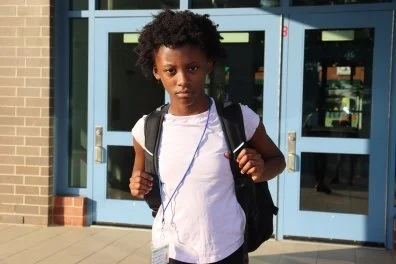Resilient Communities Initiative
Africa’s future depends on enhancing opportunity for Africa’s youth to have a healthy, secure future with increased economic opportunity. Achievement of this vision requires:
increasing educational access and quality,
addressing maternal and child heath disparities, and
ensuring that food security is pervasive. It is critical that these efforts include attention to the needs of the most vulnerable youth and those left behind by efforts to date.
Countries with large disparities in education, health, and income are especially vulnerable to the breakdown of social support systems during pandemics and climate disruptions.
Achieving this vision for Africa, as the Africa Progress Group (APG) makes clear in their 2020 report Agenda 2063, means that the youthful and growing population must be an asset to Africa’s aspirations. That can only happen if youth are well-educated and ready to become leaders of sustainable African development, when health disparities are addressed, and food security is the norm.
Our Projects
Education
Broaden educational access and equip youth with the necessary tools for strengthening their communities and achieving their own economic security.
Develop and test an intervention model based on analysis of existing practices.
Identify gaps in access and quality (e.g., gender- and location-based barriers).
Develop pilot projects that target entrepreneurial, technological, and other skills highlighted in the APG report.
Health
Increase health equity by addressing the social determinants of health and vulnerability to disease.
Assess survival assets and barriers to inclusion in health and educational systems from the children’s point of view.
Identify maternal and child health-related barriers to increasing educational achievement.
Work with local and regional partners to enhance training of health providers and incorporate skills needed for health careers in youth education.
Food Security
Enhance food security through efforts to mitigate the effects of drought and crop diseases and by addressing social and policy factors that can improve access to a healthy food supply.
Determine how children can be included in efforts to increase food security.
Identify food security-related barriers to increasing educational achievement.
Plan and execute pilot projects to build food system resilience (e.g., use of convergent and digital technologies).
Work with local and regional partners to enhance skills training needed for working in a modernized agricultural system.
Project Team
Paul Whitney
HEALTH EQUITY AND PROJECT CO-COORDINATOR
Paul Whitney is the Associate Vice President for International Programs at Washington State University, the Executive Director of the Health Equity Research Center, and a Professor of Psychology. In International Programs Dr. Whitney works to help build partnerships to increase the university’s global impact. As a Center Director he has worked to build a transdisciplinary network of scholars who are addressing the social determinants of health with the goal of enhancing health equity regionally and globally. As a scientist, Dr. Whitney is actively engaged in studying how sleep deprivation and stress cause breakdowns in attention, memory, and decision making. Dr. Whitney has over 80 scientific publications and is part of multidisciplinary teams with more than $10M in current grant funding.
EDUCATIONAL OPPORTUNITY AND PROJECT CO-COORDINATOR
Peter A. Okebukola is a Distinguished Professor of science and computer education at Lagos State University, Nigeria. He is the Director of the Centre for Human Security and Dialogue of the Olusegun Obasanjo Presidential Library. He is a Fellow of the Science Association of Nigeria (SAN), Fellow and President of the Nigerian Association for Environmental Education, and Fellow and past President of the Science Teachers Association of Nigeria (STAN). He is the President of GUNI-Africa a UNESCO outfit that has been conducting capacity-building activities in quality assurance for higher education teachers and researchers in Africa since 2004.
He won the 1992 UNESCO Prize for the Communication of Science. He has won several international gold medals in science, environmental and computer education. He was concurrently the Chairman of Council of four Nigerian universities. He is the recipient of the National Honour of the Officer of the Order of the Federal Republic- OFR. He was the Chairman of the US-based Advisory Council of the CHEA International Quality Group (CIQG) whose mandate is observatory of quality assurance practices in higher education across the world.





